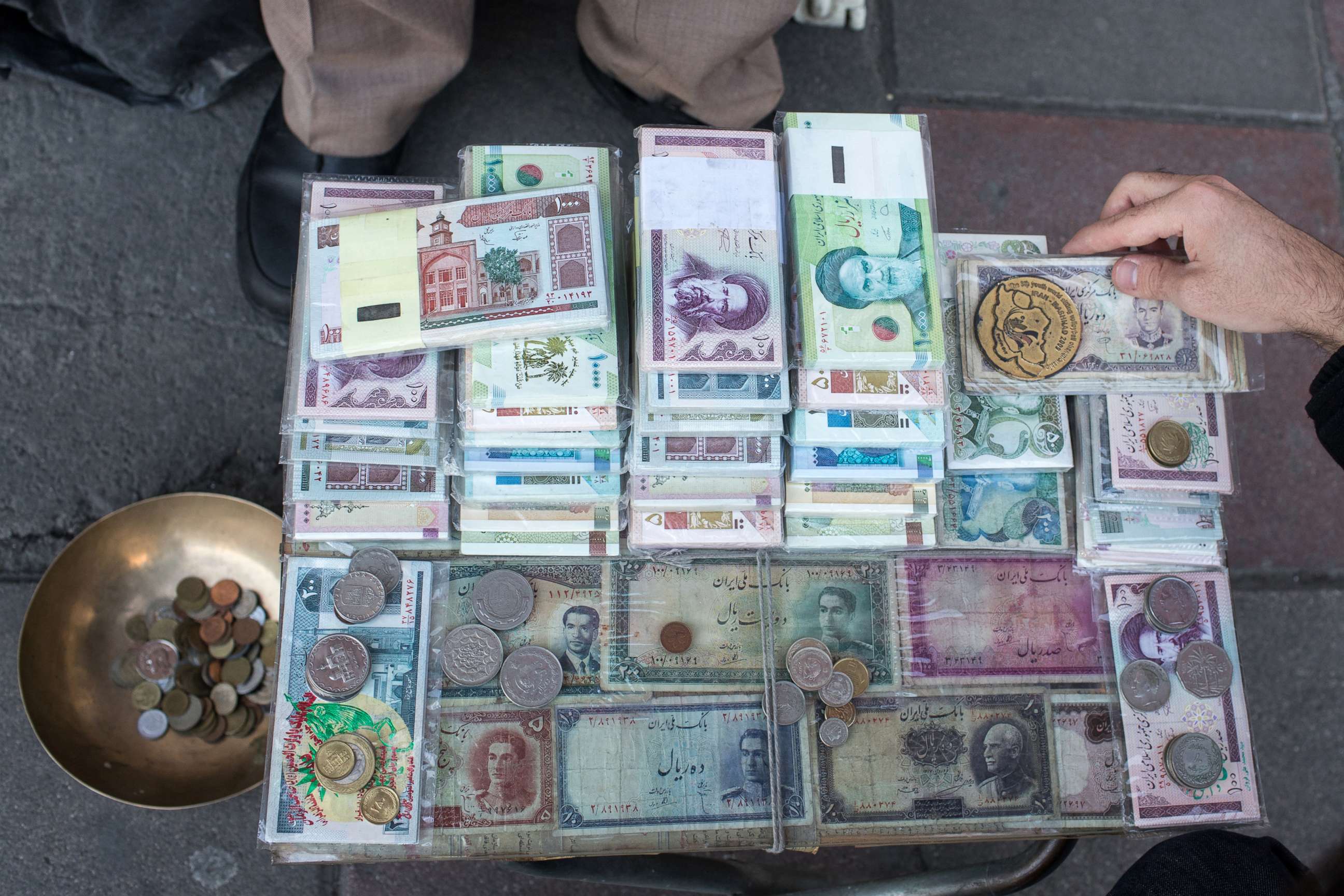Dropping 4 zeroes from currency shouldn't affect inflation, Iranian officials say
The rial will be renamed the toman, possibly boosting national pride.
After years of negotiations, Iran's Parliament finally has approved dropping four zeros from its national currency, the rial, and renaming it the toman.
Each toman effectively is worth 10,000 rials. Officials, who emphasized the benefits of lessening the psychological pressure associated with steep-looking prices, said the changes shouldn't affect inflation.
Embracing the toman also, they added, should save the country money -- fewer bills to print, fewer coins to mint.
"We are sure cutting four zeros has no effect on the inflation rate, because the inflation is the consequence here, not the cause," Abdolnaser Hemmati, head of Iran's Central Bank, said Monday in a parliamentary session.
Iranian currency gradually has lost value since the Islamic revolution in 1979, however devaluation has worsened because of war, domestic mismanagement and international pressure.
The turning point may have come in May 2018 when President Donald Trump withdrew from the nuclear deal negotiated under Barack Obama, an agreement seen as easing sanctions on Iran in exchange for the Islamic republic curbing nuclear activities.

The U.S. reimplementing sanctions and pursuing a "maximum pressure" stance further limited Iran's access to the oil money, the nation's main revenue source.
Changing the nation's currency has been studied for years, said Meysam Radpour, an expert on Iran's economy and head of an investing company.
"When a coin's face value is less than the value of the nickel used for making it," he said, "it is time to stop producing it."
Adopting the toman will help with "facilitating the accounting and auditing procedures" and may make the citizenry feel prouder of their national currency, Radpour said.
"The honor of national currency is very important," Hemmati told the Islamic Republic News Agency. "Right now, there is a huge gap between the national currency, dollar and euro. The national currency equals 0.000006 dollar, which is considered a very weak equation in the world."
Radpour disagreed with Hemmati on comparing the Iranian currency to those of other nations, adding that "dropping zeros does not increase the value of our currency."
The currency swap must be approved by the Guardian Council, a national body that supervises decisions by Parliament, before it's phased in over two years. Hopefully, Radpour added, it's quickly enough to achieve the nation's stated goals.
"The move could be more effective with a one-digit inflation rate," Radpour continued, "because if the current financial situation that has led us up to here continues, in some years, the new currency will also end up where rial is now."




